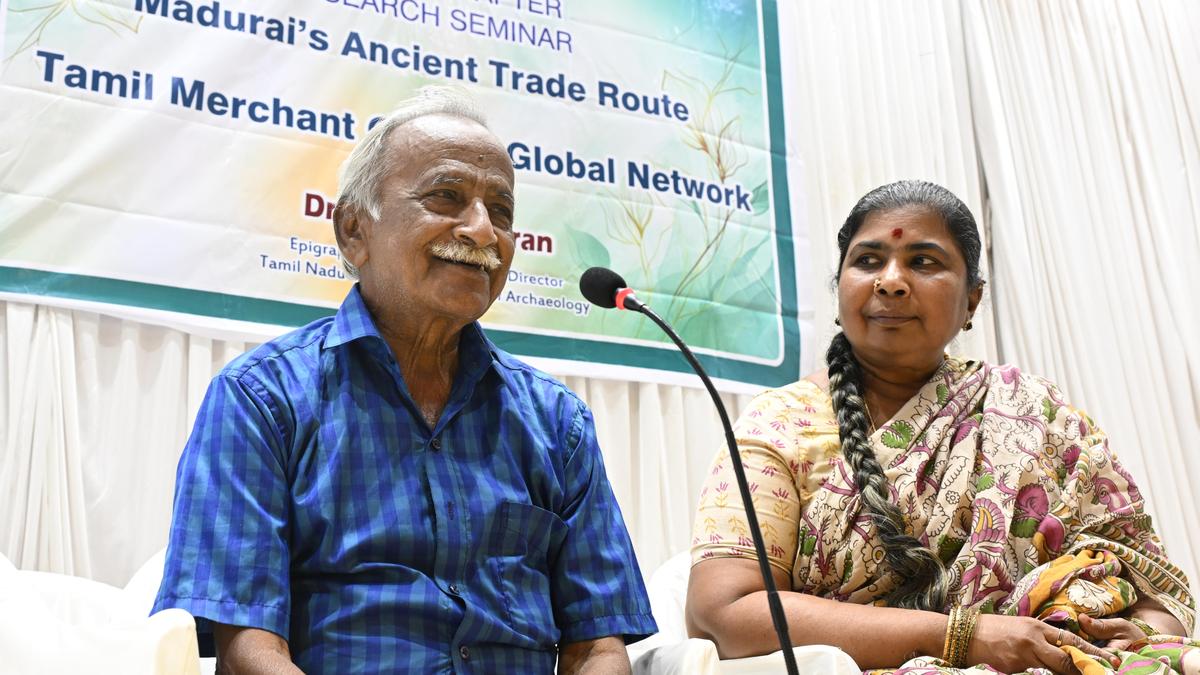
Madurai’s ancient trade routes show its significance in global market, says Archaeologist
The Hindu
Madurai's ancient trade routes and global connections revealed through historical evidence, presented by R. Poongundran at a research seminar.
Madurai, which was known for its ancient culture and tradition, got its current name only in the years during A.D, said R. Poongundran, epigraphist and former assistant director, Tamil Nadu State Department of Archaeology.
Speaking at a research seminar on Madurai’s ancient trade route and Tamil merchant guild’s global network conducted by Indian National Trust for Art and Cultural Heritage here on Saturday, Mr. Poongundran said that though the name ‘Madurai’ was coined only later, the reference to the name was found in the earlier literatures found in B.Cs.
With all the collected evidence it was apparent that Madurai was well-connected with the other parts of the world through highways (peruvazhi) and forest (kaatuvazhi) for trade purposes, he noted.
“Studies show there was a route named ‘therkuperuvazhi’ (south route) which connected Madurai with areas nearby to river Ganges for trade and other purposes,” he added.
Traders from North India and countries like Iran stayed in Madurai for trade which had flourished the region as a hotspot for business, he said.
“As references to trade in Tamil Nadu were found in an inscription dating back to 4 A.D in Vietnam, it made sure that the trade practices branched to different countries both in eastern and western parts of the world,” Mr. Poongundran said.
Modern day ideas like security along trade routes and operation of tolls to collect fees were used during the trade practice those days. “Such practice not only shows their modern time ideas but also displayed how much they cared for the business,” he said.











